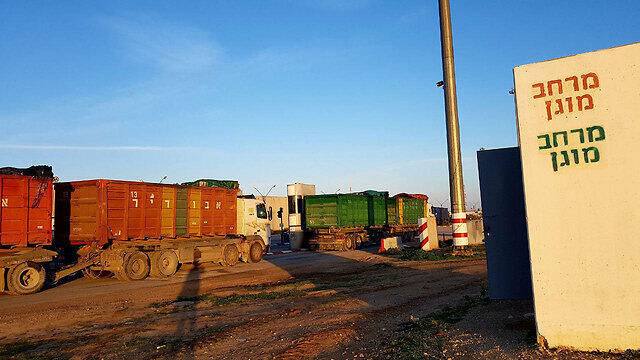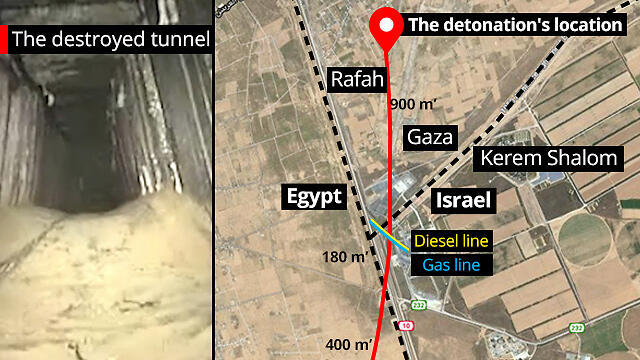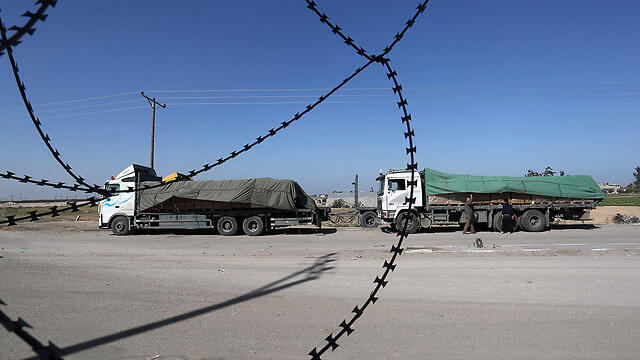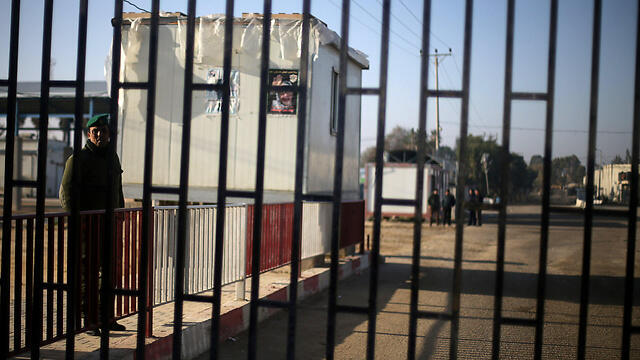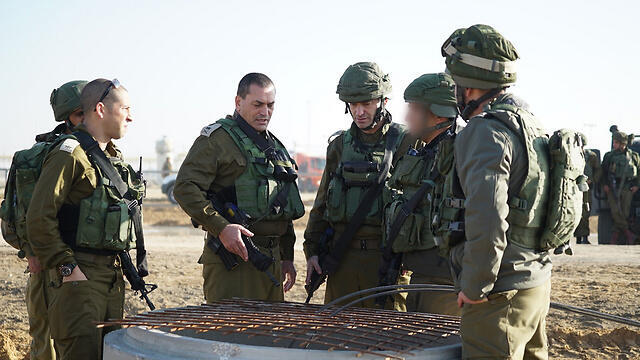Getting your Trinity Audio player ready...
Some 1,000 trucks carrying basic commodities will be entering Gaza via the Kerem Shalom crossing Tuesday for the first time since it was closed down by Israel ahead of the Israel Air Force’s bombing of a Hamas attack tunnel Saturday evening .
While truck drivers passing through Gaza’s only commercial crossing have already become accustomed to the sporadic interruptions in their daily operations, with Kerem Shalom intermittently being shut down in recent years due to security alerts, the latest revelation that the Hamas terror group was digging tunnels underneath its roads has aroused greater fear than usual.
“We have certainly gotten used to it,” says Yaron, one of the drivers who transports concrete to the Gaza Strip, “but we are still cautious. It is a real shame that we have arrived at a situation like this.”
For the residents of Gaza—who are suffering humanitarian hardships as the ruling Hamas movement continues to divert much-needed resources to it military campaigns against Israel—the impact of the closure of Kerem Shalom, which serves as a central lifeline for the coastal enclave, was immediate.
As a result, Israeli security forces undertook efforts to destroy the tunnel that weaved underneath Egyptian territory and reached 180 meters across the Israeli subterranean border, and allow for the speedy resumption of economic activities that would see basic staples such as flour, rice and other merchandise flow across its border.
Following the IDF’s completion of the destruction of the tunnel ,no new instructions were issued by the authorities and the transfer of goods is set to continue as usual.
But some drivers responsible for delivering the goods have expressed more anxiety this time round, admitting they no longer feel secure about entering an area that came dangerously close to becoming the site of a major terror attack.
“I have no doubt that a terror attack was planned at the crossing, perhaps even to carry out a kidnapping of a driver or a soldier,” Yaron surmised. “Hamas will do anything to harm us, even at the expense of harming the residents of Gaza. It’s absurd. The tension are at boiling point and you can feel this all the time.”
“We’re sure this was not the last tunnel that has been found. The whole area is netted with them. It’s frightening to come here but there’s no choice. This is our livelihood,” he added.
Another concerned driver also pointed out that the latest closure of the crossing was particularly unique. “My truck was waiting outside Kerem Shalom for two days. It’s something that hasn’t happened in a long time,” he said. “It’s a shame. We all lose out as a result of this situation. I hope that for the Gaza residents that they understand this.”
The tunnel, according to the IDF’s assessment, plunged to depths of tens of meters and was considered to be comparatively higher and wider than others discovered by the IDF in the past, suggesting Hamas’s plans that would involve the large numbers of its militants and weapons.
Discovered a few weeks ago by Israel, the Egyptians were only informed about its existence at the end of the week just before the IDF obliterated it.
Cairo, which has thus far clamped down on the tunnel network by sealing off tunnels leading from Sinai into the Gaza Strip, expressed anger over the latest tunnel reaching into the peninsula.
The incident marks the fourth time the IDF has uncovered and destroyed Hamas tunnels in the last three months, but a different method, involving both the air force and ground forces, was adopted to neutralize the latest tunnel.
The sudden switch up was designed to sow seeds of uncertainty among Hamas terrorists who have made monitoring Israel’s counter-techniques against the tunnel threat a primary objective as it seeks to perfect its ability to evade the Israeli security forces.
The IDF refuted Hamas’s claims that the tunnel was intended merely for smuggling goods. “We know how smuggling tunnels look … and this is absolutely a terror tunnel, the central part of which was dug underneath a commercial crossing,” said one IDF official after completion of the tunnel’s demolition.
Commander of the IDF’s Southern Command Major General Eyal Zamir visited Sunday morning the Hamas tunnel that was destroyed by the army over the weekend, where he said that it “first and foremost harms the residents of Gaza.”
Meeting with Gadi Yarkoni, the head of the Eshkol Regional Council, and briefing him on the latest developments, Zamir said that the IDF remains “determined to continue our efforts to destroy terror tunnels, and to act in any way for the defense of of the residents of the Gaza region and the State of Israel.”


